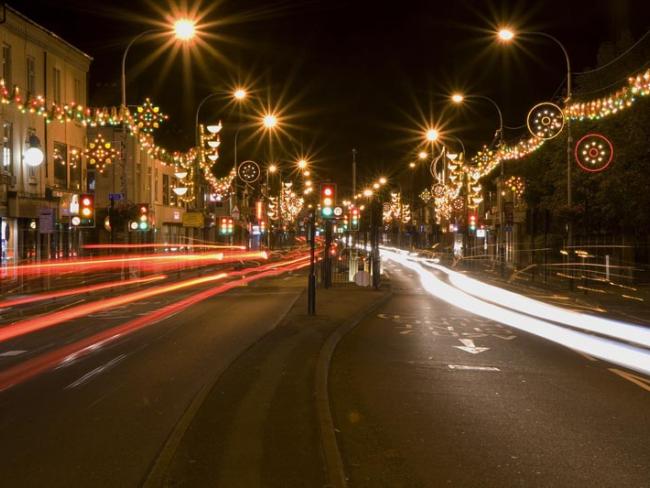
Belgrave Road, Leicester, here lit up for Diwali, was the site of some of the worst rioting. Photo Matt Preston (CC BY-SA 2.0).
Violence broke out in Leicester in September. This is the unwelcome result of Indian sub-continent politics coming to Britain – in a city where immigrants have settled and lived for decades, for the most part peacefully.
The religious and ethnic riots between Muslims and Hindus were triggered after the cricket match between Pakistan and India played in Dubai on 28 August, but had little to do with it. Over the following weeks the incidents escalated, both in the degree of violence and the extremity of the slogans.
Exaggerations and distortions spread through social media, much of it originating outside Britain, particularly from India, playing on existing tensions. The losers were the people of Leicester and Smethwick, where related violence broke out as well.
Media reports showing people influenced by Hindutva, an extremist political ideology based in India, were active in the events. Many of those arrested for intimidating and attacking Muslims came from outside Leicester. Almost inevitably some Muslims attacked Hindus in retaliation. Muslim fundamentalists took over an originally peaceful protest outside Durga Bhavan Hindu Centre in Smethwick, calling for intimidation and more threats. Fortunately, religious leaders and others called for calm and dialogue on both sides.
Unhelpfully, both the Indian and Pakistani governments weighed in with sectarian statements. These countries are filled with feudal baggage and should not be spreading it into other sovereign nations.
Ethnic or religious ghettos have no place here. They feed on separatism and a lack of integration. But this is not only about foreign intervention.
Suella Braverman, then Home Secretary, blamed the riots on uncontrolled immigration and a lack of integration. Such views are shouted down by so-called liberals who espouse multiculturalism and call anyone racist for raising real problems of migration – or anyone who voted to leave the EU – and in so doing perpetuate and support division.
At least some people in Leicester are not buying that line. A local council by-election on 13 October saw a huge swing away from Labour. Its candidate was seen as partisan and was defeated by a Conservative – despite the ongoing crisis for the government.
